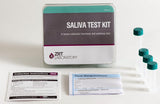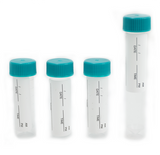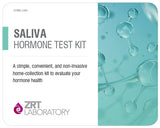Male Saliva Hormone Test Profile III – At-Home 8-Hormone Test for Men
The Male Saliva Hormone Test Profile III is a comprehensive at-home hormone testing kit designed to measure eight key hormones that influence energy, mood, metabolism, libido, sleep, and stress in men. Using an easy saliva collection method, this non-invasive test provides accurate insights into hormone balance and adrenal function, helping men take control of their hormonal health from the comfort of home.
What the Test Measures
This test analyses eight essential male hormones that work together to regulate performance, strength, and well-being:
- Testosterone (T): The main male hormone that supports muscle growth, bone strength, libido, mood, and vitality.
- Estradiol (E2): A form of estrogen in men that supports bone density, brain health, and cardiovascular balance.
- DHEAS (DS): A precursor to testosterone, produced by the adrenal glands, essential for energy and hormonal stability.
- Progesterone (Pg): Helps balance estrogen levels, supports mental clarity, and promotes calmness and focus.
- Cortisol Morning (C): Assesses your morning stress response and energy regulation.
- Cortisol Noon (C): Evaluates daytime adrenal function and stress adaptability.
- Cortisol Evening (C): Indicates how effectively your body prepares for rest.
- Cortisol Night (C): Measures nighttime cortisol to assess sleep quality and recovery.
- How and When to Collect your saliva samples: Saliva Testing Instructions
- Click to see >> Sample Saliva Test Result Report
Key Features
- Comprehensive 8-Hormone Profile: Covers testosterone, estrogen, progesterone, DHEAS, and four cortisol readings to reveal adrenal and hormonal balance.
- Fast Results: Receive a detailed hormone report within 3–5 working days after the lab receives your sample.
- Expert Analysis: Results include personalized feedback and recommendations from a PhD Hormone Specialist.
- Clear Reports: Hormone levels displayed in easy-to-understand graphs and numeric values.
- At-Home Convenience: Collect saliva samples easily without blood draws or clinic appointments.
- Transparent Pricing: All laboratory fees included—no hidden charges.
- Long Shelf Life: Valid for 12 months from purchase for flexible use.
- Suitable for All Ages: Ideal for adult men and suitable for adolescents under guidance.
(Customers are responsible for shipping samples to the laboratory.)
Why Test Your Hormones
Hormone imbalances in men can cause symptoms that affect physical, mental, and emotional health. Measuring hormone levels helps identify root causes and supports targeted lifestyle or treatment decisions.
Common Symptoms of Hormonal Imbalance in Men:
- Low energy, fatigue, or “burnout”
- Decreased libido or erectile issues
- Weight gain, especially around the waist
- Sleep disturbances or night sweats
- Mood swings, irritability, or depression
- Muscle loss or decreased strength
- Brain fog, memory lapses, or poor focus
- High stress or anxiety
Benefits of the Male Saliva Hormone Test Profile III
- Accurate and Early Detection: Identifies imbalances in testosterone, estrogen, cortisol, and DHEAS early to prevent long-term health issues.
- Personalized Insights: Understand how hormone changes impact your mood, stamina, metabolism, and sleep.
- Non-Invasive Collection: Saliva testing is simple, needle-free, and can be done at home in minutes.
- Guided by Experts: Includes professional interpretation and actionable next steps from a hormone specialist.
- Easy-to-Read Reports: Results include visual charts and precise values for better understanding.
- All-Inclusive Kit: Lab fee included—no hidden or additional costs.
How It Works
- Order Online: Receive your test kit delivered discreetly to your home.
- Collect Samples: Follow the step-by-step instructions for saliva collection.
- Ship Samples: Send your samples to the certified laboratory using the provided materials.
- Receive Results: Get your detailed results and professional analysis in 3–5 business days.
Who Should Use This Test
- This at-home hormone test is ideal for men who:
- Experience low energy, fatigue, or reduced stamina
- Have low libido, stress, or mood fluctuations
- Suspect adrenal fatigue or cortisol imbalance
- Want to optimize performance, focus, or recovery
FAQ
What does the Male Saliva Hormone Test Profile III measure?
Eight hormones: testosterone (T), estradiol (E2), DHEAS (DS), progesterone (Pg), and cortisol at morning, noon, evening, and night.
Who should use this test?
Men with low energy, poor sleep, reduced libido, weight gain, mood changes, high stress, or suspected testosterone or cortisol imbalance.
How do I collect samples?
Follow the kit guide. Collect saliva at the specified times. Avoid eating, drinking, gum, and brushing teeth for 30 minutes before each sample.
How long do results take?
Results are delivered within 3–5 working days after the lab receives the samples.
Are laboratory fees included?
Yes. The listed price includes full laboratory analysis.
Do I need to ship the samples?
Yes. Customers ship samples to the laboratory using the provided packaging.
Will a specialist review my results?
Yes. A PhD Hormone Specialist provides comments and recommendations.
Is it suitable for teens?
Yes when clinically appropriate. Interpretation should be guided by a healthcare professional.
Why measure cortisol four times a day?
To map the diurnal cortisol curve and assess circadian rhythm and stress response.
What is the kit shelf life?
12 months from purchase if unopened and stored as directed.
Can medications or supplements affect results?
Yes. Hormones, steroids, and some supplements can alter results. Do not change any medication without medical advice.
- How to Use










